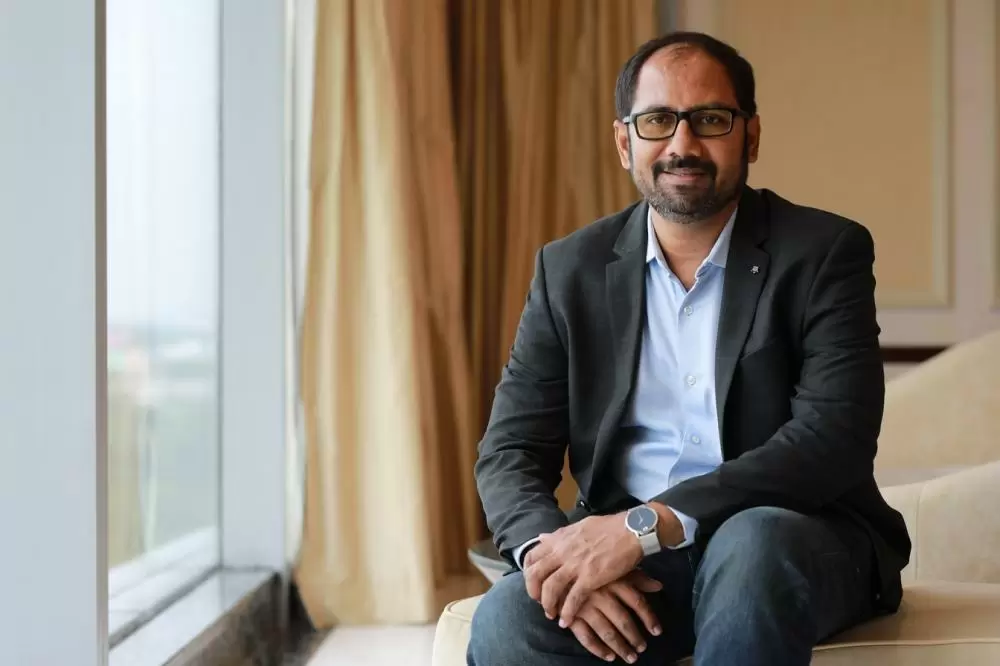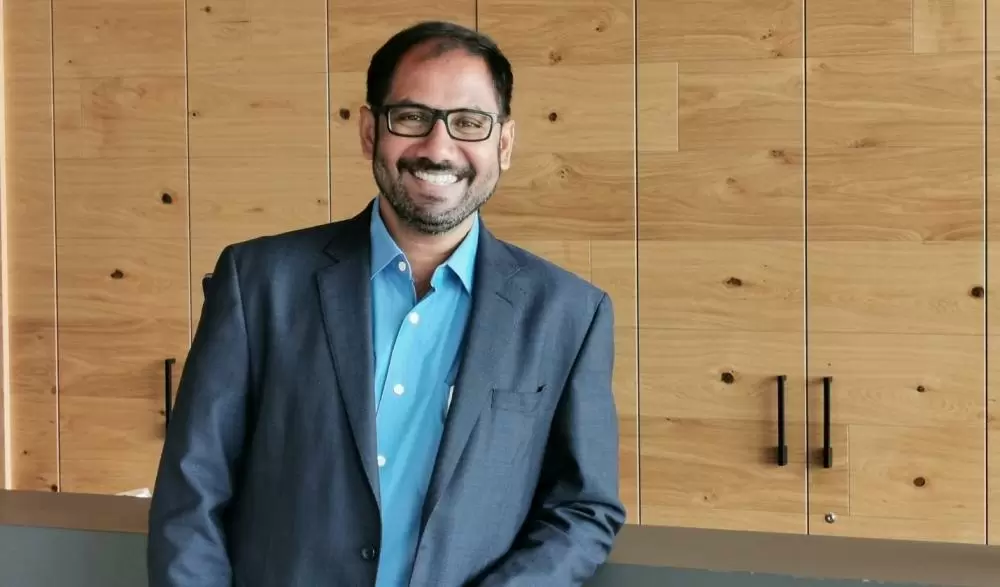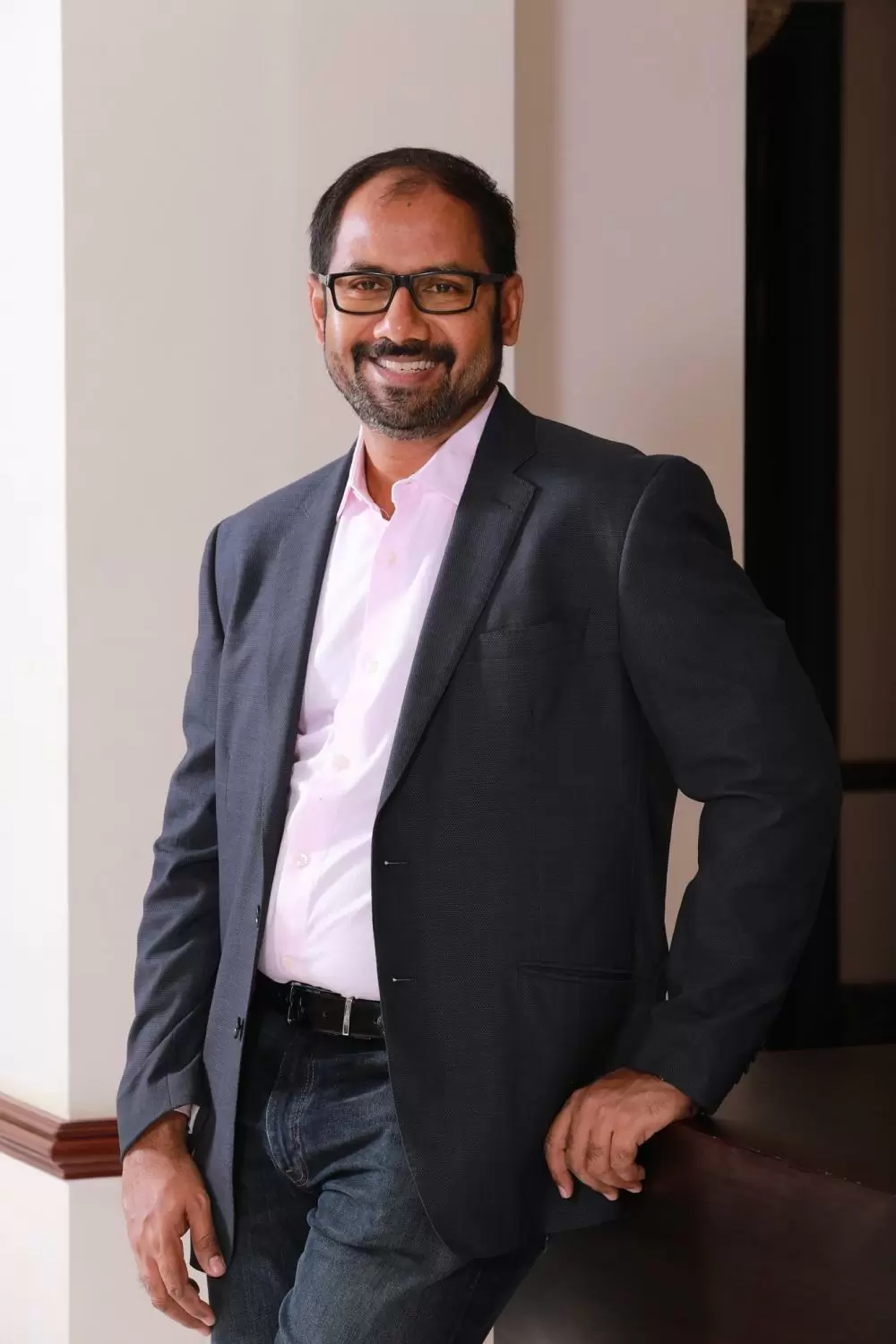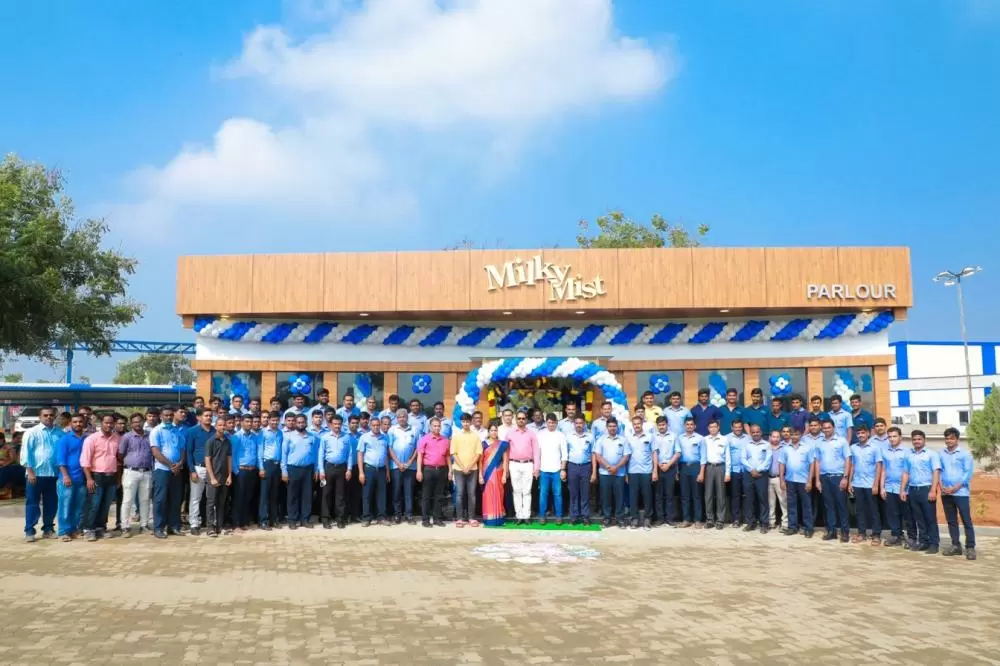How a school dropout from a small town built a Rs 1,100 crore turnover dairy brand
Updated On: 02-March-2021
Vol 6 | Issue 3
The odds were stacked against him when he took his first little step as an entrepreneur. He was young then, just 16, and a class 8 dropout. His father’s milk business that he wanted to join was floundering and on the verge of closure.
However, born into an agriculture family that owned about 20-acre cultivable land in a village near Erode in Tamil Nadu, T Sathish Kumar was prepared to meet the challenges. He dared to dream big and chase his goals with single-minded devotion.
 |
|
Sathish Kumar, MD, Milky Mist, was born into an agriculture family in a village near Erode (Photos: Special Arrangement)
|
The result: At 45, Sathish is the managing director of Milky Mist, a dairy company, whose value added milk products are increasingly seen in the shelves of stores in major cities and towns of South India, vying with other top brands in the country.
“In 2019-20 our turnover was Rs.750 crore. This year we have touched Rs.1,100 crore,” says Sathish, whose venture has grown rapidly since 2007-08, when its turnover was just Rs.13 crore.
From 13 crore, the turnover steadily rose, to Rs.25 crore in 2008-09, Rs.35 crore in 2009-10, Rs.39 crore in 2010-11, Rs.48 crore in 2011-12, Rs.69 crore in 2012-13, and Rs.121 crore in 2013-14.
 30 percent of their turnover comes from sale of cheese, followed by paneer, which brings in 27 percent and curd, 25 percent.
30 percent of their turnover comes from sale of cheese, followed by paneer, which brings in 27 percent and curd, 25 percent.
Milky Mist’s manufacturing plant is located at Perundurai, about 20 km from Erode town, where 1,700 employees work to produce paneer, butter, curd, varieties of cheese, ghee, lassi, cream, payasam ( a South Indian sweet dessert) and frozen pizza.
The Perundurai factory, which came into operation in 2017, is a fully automated and robotic plant. The products are put through a stringent quality control, explains a staff, as she shows me around the plant.
So, how did the boy from a small town, who discontinued his schooling in 1992, script his success story?
Sathish inherited the entrepreneurial genes from his father, who back in 1983 had started a power loom unit along with his brother and had sold it after three years since it did not do well.
Later, the brothers entered milk business. “They purchased milk from vendors, chilled it, and sent it to Bangalore in cans. They were selling around 3000 liters of milk daily,” recalls Sathish.
But the venture did not reach expected levels and his uncle left the business in 1990. By 1992, his father decided to wind up the business. That’s when Sathish decided to step in and try his luck.
“There was not much opposition from the family when I expressed my desire to discontinue my studies and join business. They let me pursue my interest,” says Sathish, who had studied at Hindu Kalvi Nilayam in Erode.

| Sathish dispatched the first batch of 10 kg paneer in a carry bag to Bangalore in 1993 |
Looking for ideas to develop the business, he found one of their customers in Bangalore made paneer from the milk he purchased from them and sold it to hotels at a good profit.
“I thought why not we make paneer. But the problem was we didn’t know how to make it and I didn’t know anyone who could offer me help. This was pre-internet era. Getting information was difficult in those days,” he says.
One lead they got was that paneer was made by heating milk and adding vinegar to it. They tried it and kept refining the process, till they got a reasonably good quality paneer.
Sathish dispatched the first batch of 10 kg paneer in a carry bag to Bangalore in 1993. “Initially we marketed paneer in bulk through dealers to hotels. We didn’t have a brand name then. By 1995 we were selling around 50-100 kilos of paneer daily,” says Sathish.
In 1995, they exited from (liquid) milk business totally and diverted all the milk procured from vendors to making of paneer.
Two years later, as the volumes grew, Sathish felt it was time to enter the retail market.
 |
|
Milky Mist launched its first TV commercial in 2010
|
“We wanted a brand name. I visited a browsing centre and searched for a suitable name. I chose the name ‘Milky Mist’ because it was easy to pronounce, easy to remember, and had a universal appeal. I was particular the name should not have any regional or religious affiliation,” he says.
As they entered retail, they began to invest in machinery. They started with a small investment of Rs.5 lakh, and later in 1998 obtained a bank loan of Rs.10 lakh to set up a semi-automatic paneer plant. They have continued to periodically upgrade their machinery since then.
By late 1990’s Milky Mist paneer was available in few stores in Chennai, Bangalore and Coimbatore. But institutional (or bulk) sales still constituted 80 percent of their turnover then.
In 2001, they moved their manufacturing plant from rented premises to their own property in Chittode. The company’s annual turnover in this period was around Rs.2 crore.
At this point the company ventured into sale of liquid packet milk, which Sathish feels was a mistake in retrospect. They began pushing the sale of milk with free offers. Soon there was shortage of milk to meet the demand for paneer.
In 2005, the company stopped sale of liquid milk and instead started production of khova and ghee, which was sold in bulk. The idea was to get their focus back on products.
They created their logo in 2007 and began promoting their brand. Between 2008-10, they focused on strengthening their cold storage, logistics, and distribution network in South India.
In 2010, they launched their first TV commercial for Misty Milk Paneer, their flagship product, which took their brand to the drawing rooms of millions of households in South India.
“The TV commercial gave us a clear brand identity. When you say Milky Mist you associate it with paneer. For others paneer is one of their products. For us it is our identity.
“Today we are the largest producer of fresh paneer in the country. In 2015 we were doing 15 tons of paneer per day. Now it has gone up to 45 tons,” says Sathish.
Post 2011 the company witnessed rapid growth, both in terms of increased sales and brand visibility. The decision to introduce visi coolers in the market to hold their products promoted their brand.
“Most shops had only Pepsi or Coke chillers. We can’t keep our products in their chillers. So, we decided to supply our own chillers,” says Sathish.
However, he understood that using their chillers exclusively to market paneer was a waste of valuable resource. Since 2011, as they introduced the chillers in shops – there are currently 14,000 Milky Mist chillers in stores across South India - they began to make more products.
 |
|
Sathish Kumar, MD, Milky Mist, with his colleagues at his office in Erode in front of Milky Parlour for employees
|
“We started with curd, then added cheese, yoghurt and a wide range of other milk products in the last 4 years,” says Sathish.
Their procurement of milk which stood at 1.7 lakh liters per day in 2015 has touched 6.5 lakh liters per day now. This increase has spawned a mini-white revolution in the districts of Erode, Salem, Tiruppur, Coimbatore, Namakkal, Dindigul, Dharmapuri, Jolarpet, Krishnagiri and Trichy, where they buy milk directly from an estimated 55,000 farmers.
“Farmers are getting Rs.5 more per liter since the commission to middlemen has been eliminated. We have set up 1,200 collection centres in villages, where milk is analyzed for quality. Pure milk with no water mixture fetches Rs.35 per liter for the farmer,” says Sathish
On future strategy, Sathish says they plan to consolidate and expand their paneer market and educate consumers in South India on making dishes with paneer and other milk based products.
“We have tied up with celebrity chef Sanjeev Kapoor to make videos on cooking 100 dishes with paneer and other milk products. These videos will be available in apps for free download,” says Sathish.
Sathish’s wife Anita, a computer science graduate, is taking care of their two sons, Sanjay (18) and Nitin (14).
“She is a director in the company and is involved in the business," he says.
But one problem he finds difficult to handle at home is his second son’s frequent queries on what is the use of education if he, a class 8 dropout, has achieved great success even without finishing his high school.
In the years to come, he might find giving a convincing reply to this question more difficult, than dealing with the business challenges he would face in life.
This Article is Part of the 'Amazing Entrepreneurs' Series
MORE AMAZING ENTREPRENEURS
Senthil Natarajan, CEO, Kovai Pazhamudir Nilayam
C K Kumaravel, Co-founder, Naturals














